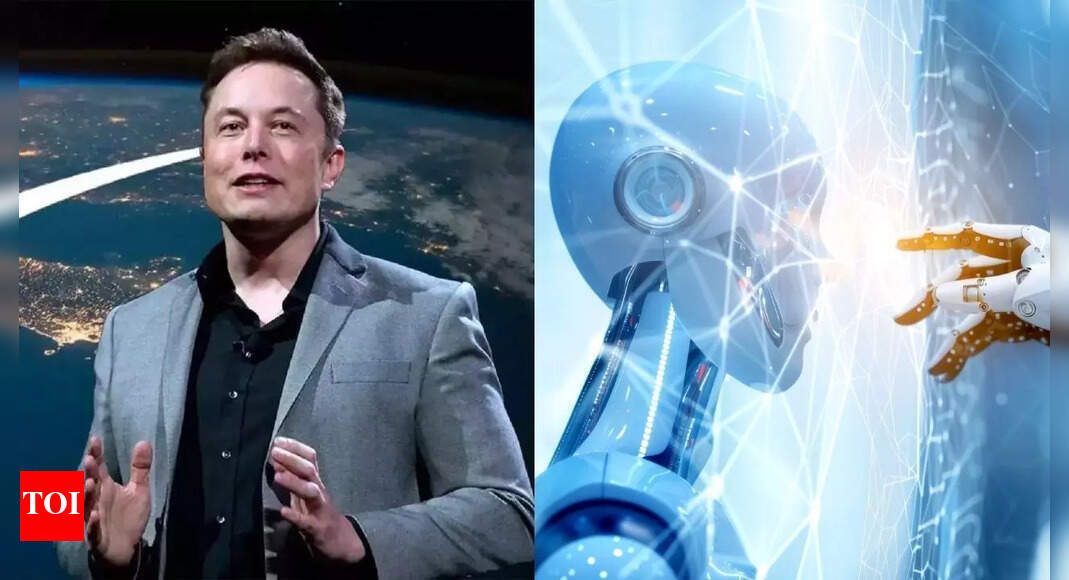Elon Musk has issued a putting prediction about the way forward for synthetic intelligence, suggesting that AI may just surpass any unmarried human in intelligence once subsequent 12 months (2026) and probably turn into smarter than all people blended by means of 2030. He made the remark all through a up to date look at the All-In podcast, emphasising each his optimism about AI’s functions and his longstanding worry over its fast construction. Whilst mavens proceed to discuss the precise timelines for attaining human-level AI, Musk’s projections underscore the accelerating tempo of AI development. His remarks additionally spotlight the pressing want for international discussions at the societal, technological, and moral implications of more and more tough AI techniques.
Conceivable causes in the back of Elon Musk’s prediction
Despite the fact that Musk didn’t specify all motivations, a number of elements may just give an explanation for why he made this remark:
- Technological trajectory: Speedy developments in AI, particularly in agentic AI, bodily AI, and sovereign AI highlighted in Deloitte’s 2025 traits record, point out a fast-moving technological frontier.
Xai positioning: As CEO of xAI, Musk is also aiming to attract consideration to AI’s functions and the corporate’s function in accelerating medical discovery.- Historic trend: Musk has a historical past of daring predictions, equivalent to suggesting in 2020 that AI would possibly overtake people by means of 2025, reflecting his tendency to stimulate public discourse and motion.
- Speculative review: Musk’s feedback might replicate his private trust within the exponential enlargement of AI, fueled by means of expanding computational energy, knowledge availability, and breakthroughs in system finding out.
Professional context: human-level AI
Whilst Musk’s timeline is competitive, it aligns loosely with broader professional hypothesis on human-level system intelligence (HLMI). A 2017 MIT find out about estimated a 50% probability of HLMI inside of 45 years and a ten% probability inside of 9 years, suggesting that Musk’s forecast is at the constructive, but now not unbelievable, aspect of professional predictions.Further surveys fortify this spectrum of professional opinion. The 2016 Survey of AI Mavens by means of Müller and Bostrom, which integrated 550 AI researchers, in a similar fashion discovered a 50% chance of HLMI inside of 45 years and a ten% chance inside of 9 years. Newer AI Affects Surveys (2016, 2022, 2023) point out rising optimism, with the 2023 survey of two,778 AI researchers estimating a 50% probability of HLMI by means of 2047, reflecting technological breakthroughs like huge language fashions. Those findings display that whilst Musk’s timeline is competitive, it stays throughout the broader vary of professional projections.
Doable risks and opposition perspectives
Musk’s prediction has sparked debate amongst mavens and the general public:
- Activity losses: AI able to outperforming people in maximum duties may just disrupt exertions markets, probably changing tens of millions of jobs in sectors from production to wisdom paintings.
- Focus of energy:
Superintelligent AI may just pay attention energy amongst a couple of firms or governments, elevating fears about inequality and regulate. - Protection considerations: Critics warn of unintentional penalties if AI surpasses human intelligence with out powerful protection measures, together with mistakes in decision-making or misuse in army or monetary techniques.
- Moral dilemmas: Questions on duty, transparency, and ethical duty for AI selections stay unresolved, fueling ongoing debates about law and moral frameworks.
Societal and generational implications
The upward push of superintelligent AI might profoundly impact society:
- Training and talent shifts: New generations might want solely other talent units, emphasizing creativity, important pondering, and AI oversight relatively than regimen paintings.
- Financial transformation: Industries may just see unheard of potency features, but additionally important displacement, requiring proactive retraining techniques and social insurance policies.
- Human id and objective: As AI surpasses human functions in additional domain names, society might face philosophical questions on paintings, creativity, and the function of people in a extremely automatic international.
The AI ethics debate
Musk’s feedback feed into the wider dialogue on AI ethics, highlighting the will for accountable AI deployment. Mavens pressure balancing innovation with safeguards, together with:
- Moral AI design and transparency
- Coverage and regulatory frameworks for high-risk AI techniques
- World cooperation to stop misuse or unintentional penalties
- Public consciousness and discourse on AI’s societal affects

